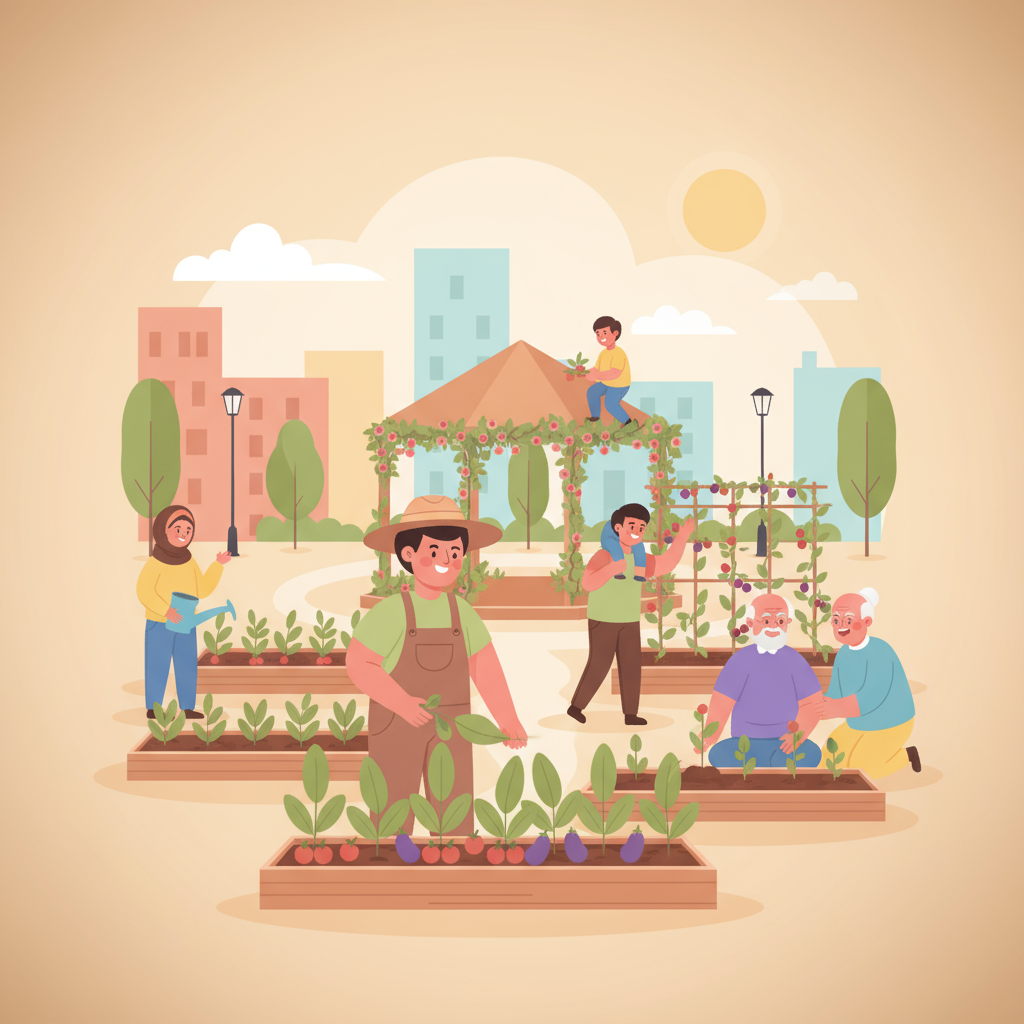Urban farmers face unique challenges and opportunities as they cultivate food in cities. Beyond producing fresh, local food, many urban farmers aim to build stronger community ties through their work.
By adopting simple daily habits, urban farmers can deepen connections with neighbors, increase community participation, and promote food security. These habits focus on more than gardening—they foster social bonds and mutual support.
In this article, you’ll explore practical, research-backed habits to help urban farmers strengthen their communities and build resilient local food systems.
Your 3 Daily Habits for Building Community as an Urban Farmer
Habit 1 — Engage Through Regular Community Outreach
Why: Consistent engagement opens channels for sharing your mission, values, and offerings with neighbors, boosting community interest and support for your farm.
How: Set aside time each day to communicate via social media updates, local newsletters, or brief conversations with community members. Invite them to upcoming farm events or volunteer opportunities.
Cue: Begin your day reviewing or posting to your farm’s communication platforms, or start with a short walk through nearby neighborhoods to chat with residents.
Habit 2 — Foster Shared Participation and Learning
Why: When community members learn about urban farming and get involved in growing food, they feel ownership and pride, deepening community ties.
How: Host or facilitate educational activities such as mini-workshops, garden tours, or hands-on planting sessions regularly. Encourage neighbors to share knowledge and work alongside you.
Cue: Use a daily planning time to schedule or prepare materials for community learning sessions, even if informal.
Habit 3 — Maintain and Beautify Communal Spaces
Why: Caring for shared urban farm spaces enhances community well-being, fosters positive perceptions, and provides inviting places for gatherings.
How: Dedicate a daily time block to upkeep tasks like watering, weeding, and composting with an emphasis on creating a welcoming environment. Involve neighbors in these activities.
Cue: Link this habit to natural daily events such as morning or evening watering.
Week 1 Schedule
| Day | Activity |
|---|---|
| Monday | Post farm update on social media and invite neighbors to volunteer |
| Tuesday | Organize a short workshop or Q&A session on container gardening |
| Wednesday | Walk around the neighborhood to engage with community members |
| Thursday | Hold a small volunteer gathering to maintain farm spaces |
| Friday | Send newsletter or message featuring recipes or health tips using your produce |
| Saturday | Host a farm tour or tasting event inviting local residents |
| Sunday | Plan next week’s outreach and educational activities |
Troubleshooting
Barrier: Low community interest or participation.
Fix: Increase efforts in personal communication, invite feedback, and make participation easy and enjoyable to encourage involvement.
Barrier: Time constraints making it difficult to maintain daily habits.
Fix: Break tasks into small chunks, use batching (e.g., social media posts scheduled in advance), and involve volunteers to share workload.
Barrier: Navigating regulatory or zoning challenges for urban farms.
Fix: Stay informed through local urban agriculture networks and online resources; advocate for supportive policies and partnerships.
FAQs
Q: How can I measure the impact of these daily habits on community ties?
A: Track participation numbers at events, gather feedback from community members, and observe increased volunteer engagement or repeat attendees over time.
Q: What if my urban farm has limited space for community activities?
A: Utilize virtual platforms for education and outreach, collaborate with local community centers, or host small, frequent events to accommodate space.
Q: How can urban farming address food insecurity in my community?
A: By providing fresh produce directly to neighbors, collaborating with local food banks, and offering educational programs about nutrition and cooking.
Tracking & Motivation Tips
Keep a simple journal or use a habit tracking app to note daily outreach, learning events, and farm care activities. Reflect weekly on community responses and adjust your approach. Celebrate small wins such as new volunteers or positive feedback to stay motivated and committed to your daily habits in building stronger community ties through urban farming.
Key Takeaways for Urban Farming Community Habits
Adopting simple daily habits focused on outreach, education, and communal spaces can significantly strengthen community ties. Urban farming is not just about growing food but growing connections. These small, regular actions build trust, engagement, and resilience in neighborhoods, ultimately enhancing food security and sustainability.




